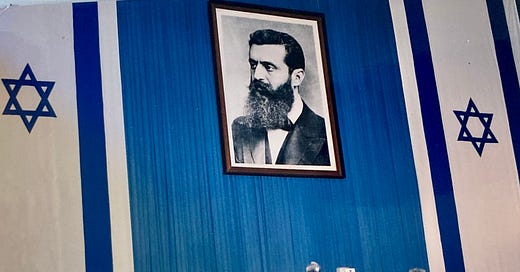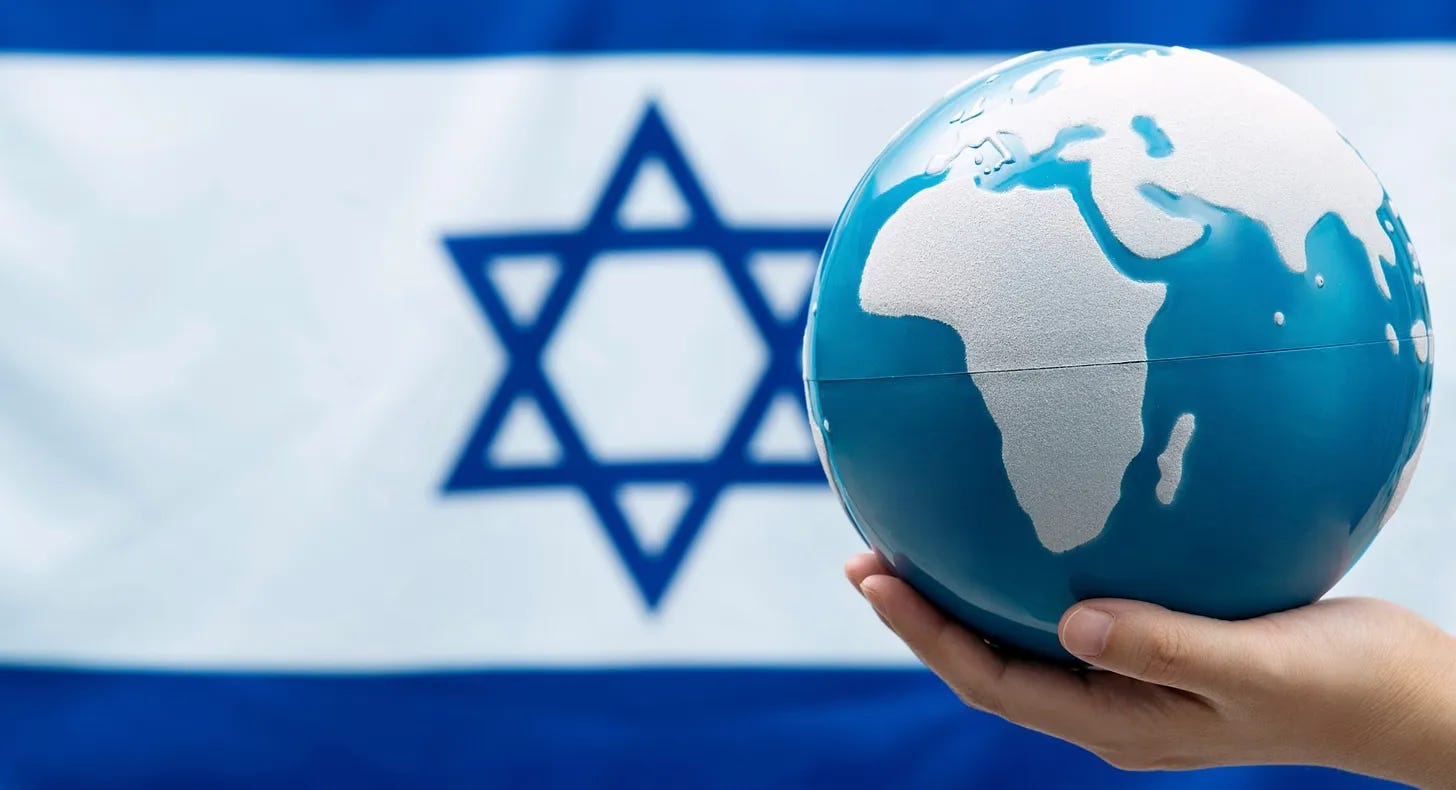Antisemitism → Jewish Strength
"I think that if Theodor Herzl were alive today and could see how strong, successful and self-reliant the Jewish People continue to be — particularly Israelis — he would say one thing: keep going."
By Michael Golden
Editor’s Note: Special thanks to our partner Steven Drucker and his Substack on Jewish history, “DUST AND STARS.”
I frequently get asked the following question by Jews and non-Jews alike:
What is the actual reason that people are antisemitic? Why do so many people hate Jews?
It’s an enormously important question. And at this point in civilization, there’s not one exclusive answer. Certainly its roots lie in ancient religious conflict. From there, the persecution of Jews ballooned into an almost reflexive behavior for many people and nations; like a boulder picking up steam while rolling straight downhill through history.
But there is also a deep irony hiding in plain sight when it comes to what drives antisemitism in modern times. Instead of responding to the continuing hatred by cowering in a corner, the Jewish People — who comprise a whopping .02 percent of the world’s population — have instead survived, succeeded, and also developed a new kind of power and strength.
I could expand on this feedback loop in my own words, but on the birthday of Theodor Herzl — father of modern Zionism — I’d rather borrow some of his.
Herzl wrote The Jewish State in 1896, a short volume laying out his vision for Jews to create an independent, sovereign state in the twentieth century. But before he starts to describe this future, he first explains important parts of the past. Early on, Herzl distills historical events that have shaped and continue to perpetuate antisemitic tropes:
“The sins of the Middle Ages are now being visited on the nations of Europe. We are what the Ghetto made us. We have attained pre-eminence in finance because medieval conditions drove us to it. The same process is now being repeated. We are again being forced into finance, now it is the stock exchange, by being kept out of other branches of economic activity. Being on the stock exchange, we are consequently exposed afresh to contempt.”
What did this contempt look like in Herzl’s time — forty years before the Holocaust? He paints the picture:
“The forms of persecutions varying according to the countries and social circles in which they occur. In Russia, imposts are levied on Jewish villages; in Rumania, a few persons are put to death; in Germany, they get a good beating occasionally; in Austria, anti-Semites exercise terrorism over all public life; in Algeria, there are traveling agitators; in Paris, the Jews are shut out of the so-called best social circles and excluded from clubs. Shades of anti-Jewish feeling are innumerable.”
And here’s where that great irony shows up. Herzl explains that the more Jews continued to flourish and contribute to the countries and economies they lived in, the more they were castigated for their successes:
“We might perhaps be able to merge ourselves entirely into surrounding races, if these were to leave us in peace for a period of two generations. But they will not leave us in peace. For a little period they manage to tolerate us, and then their hostility breaks out again and again. The world is provoked somehow by our prosperity, because it has for many centuries been accustomed to consider us as the most contemptible among the poverty-stricken.”
In other words, human beings who hate others aren’t going to be thrilled when the group they hate survives. And they’ll be downright furious if they thrive. This fury has been visited upon Jews for centuries. But in writing The Jewish State, Theodor Herzl announced that the time had come for his tribe to turn the tables:
“We are one people — our enemies have made us one without our consent, as repeatedly happens in history. Distress binds us together, and, thus united, we suddenly discover our strength. Yes, we are strong enough to form a state, and, indeed, a model state. We possess all human and material resources necessary for the purpose.”
One year after Herzl wrote The Jewish State, he convened the First Zionist Congress in Basel, Switzerland. A movement was under way. He could see it. All of that suffering would not be for nothing.

But Herzl also made it clear that when he recounted the long persecutions of his people, it was never his intent “to make a doleful category of Jewish hardships.” What he wanted to do was use history as a guide to get to something better. Since antisemitism had always required Jews to figure out how to survive and succeed, why not convert that same ingenuity into creating a state. A very strong state.
Theodor Herzl died in 1904 at the age of forty-four. Had he lived another forty years, he would have seen his vision come true. Nearly verbatim.
It’s a tired old practice of antisemites to accuse Jews of having outsize influence in arenas that have the power to shape the world: finance, commerce, entertainment, law, politics, etc. They are further enraged that for 76 years now, Jews have had an independent state of their own with a powerfully advanced military and nuclear weaponry.
These fools should all take a look in the mirror. Do the math. If the world was trying to get rid of you — what would you do?
I think that if Theodor Herzl were alive today and could see just how strong, successful and self-reliant the Jewish People continue to be — particularly Israelis — he would say one thing: keep going.
…okay, he’d probably come up with something a bit more eloquent. Especially on his 164th birthday. Or maybe “the father” would just repeat the eight simple words he made famous long ago — because he lived them:
“If you will it, it is no dream.”
Michael Golden is the Editor-in-Chief of JEWDICIOUS.
From unpacking history and politics to navigating the nuances of family and personal relationships to finding the human angle on sports and entertainment — plus our unsparing take on what’s happening in the Jewish world — the canvas at JEWDICIOUS is limitless! JOIN US!!





